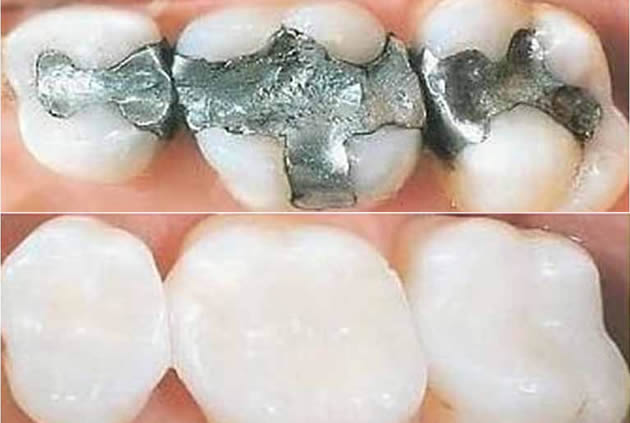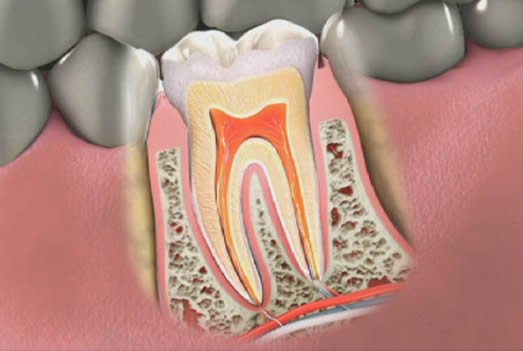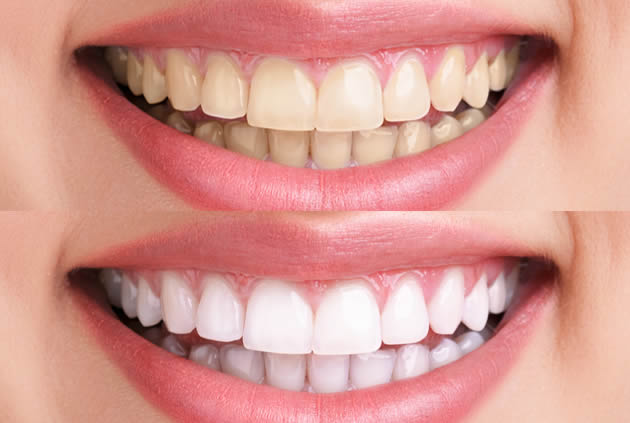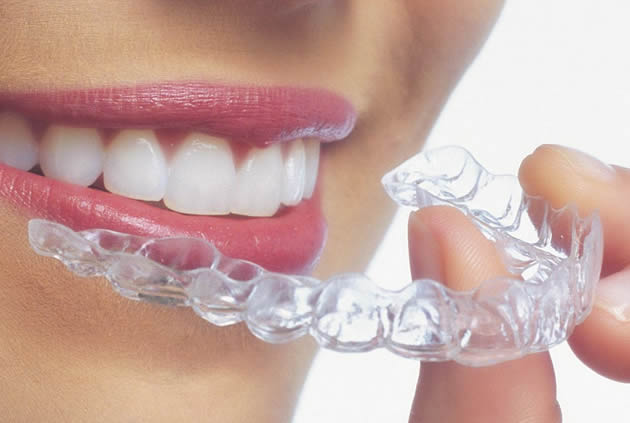
Why You Shouldn’t Let Fear Keep You Away from the Dentist
Dental fear is a common and understandable feeling that many people experience. It often stems from past negative experiences at the dentist, fear of pain, or even just the unknown. Whatever the reason may be, dental anxiety can prevent people from regularly visiting the dentist for important check-ups and cleanings.
According to research conducted by the American Dental Association, up to 20% of Americans avoid going to the dentist due to fear or anxiety. This is concerning because regular dental check-ups and cleanings play a crucial role in maintaining good oral health.
Understanding Dental Fear
The Root Causes of Fear
Dental fear or anxiety is a common issue that affects millions of people worldwide. This fear can stem from various reasons, starting with past experiences at the dentist. If you had a bad encounter with a dentist, whether it was due to pain, discomfort, or simply an unpleasant experience, it can develop into an actual phobia.
Additionally, if you’ve heard horror stories about dental procedures from others or seen negative portrayals on TV shows and movies, this could also contribute to your dental fears. Another reason for dental anxiety is the fear of pain.
Even though modern dentistry has come a long way in terms of reducing pain levels during procedures, the thought of feeling any type of discomfort or pain can trigger some individuals. Furthermore, individuals who have mental health issues like depression and anxiety are more likely to experience dental anxiety.
Dental Anxiety’s Effect on Oral Health
When dental anxiety becomes extreme and prevents someone from going to the dentist altogether, it can lead to severe oral health issues. A person who avoids going to the dentist may have untreated cavities that worsen over time and increase their risk for tooth decay and inevitable tooth loss.
Moreover, untreated gum disease is another big concern resulting from avoiding regular check-ups and cleanings. Gum disease occurs as a result of plaque buildup in between teeth that hardens into tartar if left untouched for too long; eventually leading to gum inflammation and bleeding when brushing your teeth.
If left controllable without treatment by a professional dentist upon diagnosis stage 1 gingivitis leads towards stage 4 periodontitis which results in bone loss around teeth and eventual tooth loss. It’s crucial not only for oral health but also general well-being that individuals overcome their fear of going to the dentist by finding ways to manage their anxieties before visiting a dentist; thereby, preventing these issues from happening in the first place.
Overcoming Dental Fear
Tips for Managing Anxiety Before and During a Dental Visit
If you are one of the many people who experience dental fear, there are several techniques you can try to manage your anxiety before and during a dental visit. Deep breathing is a great way to calm your mind and relax your body. Take slow, deep breaths in through your nose and out through your mouth.
Visualization techniques, such as imagining yourself in a peaceful setting like the beach or the mountains, can also help distract you from any anxieties you may be feeling. Another helpful tip is to communicate with your dentist about your fears.
Letting them know how you feel can lead to more personalized care that accommodates your needs. They can explain each step of the procedure beforehand, address any concerns you may have, and offer reassurance throughout the visit.
Sedation Dentistry Options for Those with Severe Anxiety
For those with severe dental anxiety that cannot be managed with relaxation techniques alone, sedation dentistry may be an option to consider. This involves administering medication to help patients relax during procedures. There are several types of sedation available depending on the level of anxiety and type of procedure being performed.
Nitrous oxide, commonly known as laughing gas, is often used for mild cases of anxiety. The gas is administered through a mask placed over the nose and helps patients feel calm and relaxed.
Oral sedation involves taking medication prior to the appointment to induce drowsiness and relaxation. This option is typically reserved for moderate cases of anxiety.
Intravenous (IV) sedation is used for more severe cases of anxiety or longer procedures where deeper levels of sedation are needed. Medications are administered directly into the bloodstream through an IV line.
It’s important to discuss all options with your dentist before choosing which type of sedation would best suit your needs. With the right approach and communication, dental anxiety can be managed, allowing for a more comfortable and stress-free dental experience.
The Benefits of Regular Dental Visits
Prevention and early detection of oral health issues
Regular dental check-ups are essential for maintaining optimal oral health. During these visits, your dentist will check for any signs of tooth decay, gum disease, or other oral health issues. Early detection is key to preventing these problems from becoming more serious and potentially causing more significant damage to your teeth and gums.
Your dentist may also take X-rays during your visit to check for any underlying issues that may not be visible during a visual examination. By catching such problems early on, you can avoid the need for more extensive and expensive treatments down the road.
Importance of maintaining good oral hygiene habits
Regular dental visits also help you maintain good oral hygiene habits. Your dentist will provide guidance on proper brushing and flossing techniques, as well as offer advice on how to improve your diet to ensure healthy teeth and gums. Additionally, during a dental cleaning appointment, your hygienist will remove any buildup of plaque or tartar that cannot be removed with regular brushing or flossing alone.
This process helps prevent cavities, gum disease, and bad breath. By following the recommendations provided by your dentist during regular check-ups, you can ensure that you are doing everything possible to maintain good oral health throughout your life.
Finding the Right Dentist for You
Factors to Consider When Choosing a Dentist
Choosing a dentist can be overwhelming, especially when you have dental anxiety. However, there are some factors that can help narrow down your options. Location is the first factor to consider.
You want to choose a dentist that is conveniently located near your home or office so you don’t have to spend too much time or effort traveling there. Experience is also important when choosing a dentist.
Look for someone with many years of experience and who has treated patients with similar fears before. Reading patient reviews can be helpful in determining if the dentist has a good reputation.
Importance of Finding a Dentist Who Understands and Can Accommodate Your Fears
It is crucial to find a dentist who understands your fears and knows how to work with them. Fearful patients require extra attention and care during dental visits, so it’s important that your dentist knows how to handle your anxiety. Dentists who specialize in treating fearful patients may offer sedation dentistry options such as nitrous oxide or oral sedation.
They may also take extra time during appointments to explain procedures thoroughly, answer questions, and establish trust. In addition, finding a supportive dental team can make all the difference in overcoming dental fear.
From the front desk staff to the hygienists and assistants, everyone should be kind and compassionate towards fearful patients. By taking these factors into consideration when choosing a dentist, you can feel more confident about getting the dental care you need while overcoming your fear of dentistry.
Dental Fear Shouldn’t Keep You From Good Oral Health
Dental fear is a common problem that affects many people. However, it’s important to remember that avoiding the dentist can have serious consequences for your oral health.
Regular check-ups are essential for maintaining healthy teeth and gums, and overcoming dental fear should be a priority. With the tips outlined in this article and the help of a compassionate dentist, you can manage your anxiety and get the care you need.
A Positive Outlook on Dental Health
Don’t let fear stand in the way of optimal oral health! By seeking out a dentist who understands your concerns and using coping strategies like deep breathing or sedation dentistry, you can take control of your dental anxiety and enjoy the benefits of regular check-ups.
Remember that good oral hygiene habits also play an important role in preventing problems down the line. With dedication to your dental health, there’s no reason why you can’t have a bright, healthy smile throughout life!
Do not let another day go by without taking care of your dental needs. Request an appointment now at our Baltimore dental office!

What Are Dental Sealants
Dental sealants are thin plastic coatings that are applied onto the surface of the teeth in order to protect them from bacteria and acids that cause tooth decay. The sealant forms a protective barrier over the enamel (the hard outer layer of your teeth) by filling in small grooves or pits where food particles can get trapped and cause plaque buildup. This simple preventive measure can go a long way in protecting your teeth from cavities.
Importance of Dental Sealants in Maintaining Oral Health
According to the Centers for Disease Control (CDC), dental sealants have been shown to reduce tooth decay by up to 80% in school-aged children who receive them on their permanent molars. This statistic alone shows just how effective this preventive measure is at maintaining oral health.
Dental sealants provide an extra layer of protection against bacteria and acids that normal brushing and flossing cannot reach. Dental sealants also have long-lasting effects when applied properly with regular check-ups with a dentist ensuring any damage or wear is repaired quickly before it leads further damage or decay.
In addition to its effectiveness, dental sealant is also cost-effective as compared to other dental treatments. It is significantly cheaper than getting a filling or a crown, making it a viable option for most people.
Dental sealants are an essential tool in maintaining oral health. By providing an extra layer of protection against tooth decay and cavities, they can help you keep your teeth healthy and prevent more costly dental procedures down the road.
Types of Dental Sealants
There are two main types of dental sealants: resin-based and glass ionomer-based. Resin-based sealants are more commonly used due to their durability and longevity. Glass ionomer-based sealants are typically used for baby teeth or as a temporary solution until permanent restorations can be placed.
How Dental Sealants Work
The application process for dental sealants involves cleaning and preparing the tooth surface before applying the resin material. Once applied, the material bonds directly to the tooth surface, creating a protective barrier that lasts for several years. Dental sealants work by forming a physical barrier between the grooves and pits on tooth surfaces where bacteria can accumulate, effectively preventing cavities from developing in these areas.
They also help prevent future damage by sealing out bacteria that can cause further decay. By reducing your risk of developing cavities, dental sealants can save you time and money in costly restorative treatments down the line.
Benefits of Dental Sealants
Prevention of tooth decay and cavities
One of the primary benefits of dental sealants is their ability to prevent tooth decay and cavities. Sealants are particularly effective at protecting the molars and premolars, which are the teeth located in the back of your mouth that are most susceptible to decay. By sealing grooves and crevices in these teeth with a resin material, sealants prevent food particles and bacteria from becoming trapped and causing decay.
Protection for vulnerable teeth surfaces
Dental sealants can also provide protection for teeth surfaces that are especially vulnerable to damage. This may include teeth that have thin enamel, as well as those that have undergone restorative dentistry procedures such as root canals or fillings. Sealants create a barrier between these surfaces and the outside environment, shielding them from harmful bacteria, acids, and debris.
Cost-effective preventive measure
Perhaps one of the biggest advantages of dental sealants is their cost-effectiveness when compared to other types of preventive dental care. While regular cleanings, x-rays, and fillings can quickly add up in terms of out-of-pocket costs or insurance co-pays, dental sealant application is relatively inexpensive.
In fact, many insurance plans cover some or all expenses related to this procedure for children under a certain age. Additionally, because sealants can last for several years with proper care, they provide long-term value for patients seeking to maintain optimal oral health without breaking the bank.
Who Needs Dental Sealants?
Children and Teenagers
The American Dental Association (ADA) recommends that children receive dental sealants as soon as their permanent molars come in, usually around age 6. At this age, the teeth are vulnerable to decay and cavities because they have deep grooves and pits that trap food and bacteria. Applying dental sealants to these teeth can prevent up to 80% of cavities.
Teenagers who have not had dental sealants before can still benefit from them. As children’s molars continue to grow until about age 14, teenagers who may not have received the treatment at a younger age should consider getting sealants on previously untreated teeth.
Adults with Deep Grooves or Pits in Their Teeth
Even adults can benefit from dental sealants if they have deep grooves or pits in their teeth. These areas can easily trap food particles and bacteria, leading to tooth decay and cavities. By applying a layer of dental sealant over these areas, adults can significantly reduce their risk of developing tooth decay.
It is important to note that some adults may already have fillings in these areas, which would make it impossible or impractical to apply dental sealant. Your dentist will be able to advise you on whether or not you are a good candidate for this procedure.
Individuals with a High Risk for Tooth Decay
Individuals who are particularly susceptible to tooth decay due to factors such as poor oral hygiene habits, dry mouth syndrome or other health issues should consider getting dental sealants applied. This preventive measure helps protect vulnerable areas of the teeth from bacteria that could cause further damage. Dental professionals recommend scheduling regular checkups for individuals with high risks of tooth decay throughout their lives since applying new layers of sealant is necessary every few years depending on several factors including the type of sealant used and the individual’s oral hygiene regimen.
The Procedure for Applying Dental Sealants
Preparation before the procedure
Before applying dental sealants, your dentist will examine your teeth to determine if they are healthy and free from decay. They may also clean your teeth thoroughly to remove any plaque or debris that could interfere with the application of the sealant. If you have existing fillings or cavities, your dentist may recommend treating them first to ensure optimal oral health.
Application process and materials used
The application process for dental sealants is straightforward and typically takes only a few minutes per tooth. First, your dentist will dry the surface of the tooth and apply an acid solution that roughens up the enamel. This helps the sealant adhere more effectively to the tooth surface.
Next, the dentist will rinse off the acid solution and dry the tooth once again before applying a thin layer of dental sealant material onto each tooth’s chewing surface. The material used for dental sealants can vary slightly depending on what type of sealant is being applied.
However, most dental sealants are made from either resin or glass ionomer cement material. Resin-based sealants tend to be more durable but require a dry surface during application, while glass ionomer cement-based materials can be applied to slightly damp surfaces but may not last as long.
Aftercare instructions
After having dental sealants applied, it is important to take care of them properly to ensure their longevity and effectiveness at preventing tooth decay. Your dentist will likely give you specific instructions on how best to care for your newly sealed teeth.
Generally speaking, after getting dental sealants applied you should avoid eating anything hard or sticky for at least 24 hours afterwards as this could potentially dislodge them. You should also make sure you brush and floss regularly as normal to maintain good oral hygiene practices overall.
Additionally, you may want to consider avoiding foods high in sugar as these can contribute to the development of tooth decay even if you have dental sealants applied. It is important to continue attending regular check-ups with your dentist so they can monitor the efficacy of your dental sealants and make any necessary adjustments.
Tips for Maintaining Dental Sealant Effectiveness
Regular brushing and flossing
One of the most effective ways to keep dental sealants in good condition is by practicing proper oral hygiene. Brushing your teeth at least twice a day and flossing regularly can help remove food particles and bacteria that can affect the sealant’s effectiveness. Use a soft-bristled toothbrush to avoid damaging the sealant surface, and choose fluoride toothpaste to strengthen your teeth.
Avoiding hard or sticky foods
While dental sealants are designed to provide a protective barrier against decay-causing bacteria, they are not invincible. Avoid biting down on hard objects like ice, hard candy or pens, as this can chip away the protective layer. Sticky foods such as caramel or taffy can also get stuck in between teeth and make it difficult to clean effectively.
Regular check-ups with a dentist
It’s important to schedule regular appointments with your dentist even if you have dental sealants in place. A dentist will check for any signs of decay or wear and tear of the sealant material during routine cleanings. This helps ensure that any issues are detected early, before they escalate into something more serious that requires extensive treatment.
Taking care of dental sealants involves being diligent about oral hygiene practices such as brushing, flossing while also avoiding certain foods that could damage them. Consistent check-ins with your dentist will help catch any issues early on so that you can maintain healthy teeth over time.
Schedule an Appointment
Dental sealants are an important preventive measure that can help to maintain good oral health. As outlined in this article, dental sealants are a protective coating that is applied to the teeth, usually the molars and premolars, to prevent tooth decay and cavities. They are particularly useful for children and teenagers who may not have developed good oral hygiene habits yet, as well as adults with deep grooves or pits in their teeth or those who have a high risk for tooth decay.
By investing in dental sealants, individuals can save money over time by avoiding expensive dental procedures such as fillings or root canals. Additionally, dental sealants provide long-lasting protection for teeth surfaces that are vulnerable to decay.
Regular brushing and flossing along with regular check-ups with a dentist can help maintain the effectiveness of dental sealants. While there may be some potential risks associated with the application of dental sealants such as allergic reactions or possible damage to existing fillings or decayed teeth, these risks tend to be low.
It is clear that dental sealants play an important role in maintaining good oral health. By taking proactive steps such as investing in dental sealants and practicing good oral hygiene habits, individuals can enjoy strong and healthy teeth for years to come.
Do not wait any longer. Book your appointment now and achieve the smile you have always wanted. Dr. Farrugia is accepting new patients from Baltimore and the surrounding area.

Why You Should Never Skip Regular Dental Appointments
Welcome to the world of general dentistry – a branch of medicine that deals with the prevention, diagnosis, and treatment of oral health issues. General dentists are your primary care dental providers who offer a range of services such as routine check-ups, teeth cleaning, cavity filling, gum disease treatment, root canals, and more. Dental problems not only affect your oral health but also impact your overall well-being.
Poor oral health can lead to several chronic diseases such as heart diseases, stroke, diabetes, and respiratory infections. Therefore it is crucial to maintain good oral hygiene practices and visit a general dentist regularly.
The Significance of Regular Dental Appointments
Regular dental appointments are essential for maintaining optimal oral health. It is recommended to visit your dentist once every six months for routine check-ups and cleanings.
During these appointments, your dentist can detect any potential issues early on before they become major problems that require extensive treatment. Dentists also perform regular teeth cleanings that help remove plaque buildup and tartar from hard-to-reach areas in your mouth.
This helps prevent the formation of cavities and gum disease which can lead to tooth decay and tooth loss. Overall regular dental visits are an integral part of maintaining good oral health habits for life.
Benefits of Regular Dental Appointments
Preventative care for oral health issues
One of the main benefits of regular dental appointments is prevention. By scheduling regular check-ups, your dentist can identify and treat any oral health issues before they become major problems.
During your appointment, you will receive a thorough examination, including a cleaning and polishing to remove plaque and other buildup that can lead to tooth decay or gum disease. By taking preventative measures, you can avoid painful and costly treatments in the future.
Early detection and treatment of dental problems
Another key benefit of regular dental appointments is early detection. Your dentist is trained to identify dental problems before they become serious issues.
For example, if you have a small cavity that goes untreated, it can lead to further decay and eventually require a root canal or even extraction. However, if caught early enough, a simple filling may be all that is needed to prevent further damage.
Improved overall health and well-being
Regular dental appointments not only benefit your oral health but also improve your overall health and well-being. Studies have shown that there is a link between poor oral health and other medical conditions such as heart disease, diabetes, and stroke. By taking care of your teeth and gums through regular check-ups with your dentist, you are also taking care of your body as a whole.
Additionally, maintaining good oral hygiene has been linked to improved mental health as well as higher self-esteem levels. So don’t neglect those regular appointments – they’ll keep you healthy both inside and out!
Common Procedures During Dental Appointments
When you go to the dentist for a regular checkup, there are a few common procedures that you can expect to undergo. These procedures are designed to help your dentist keep your teeth healthy and identify any issues that may have developed since your last visit. Here are some of the most common procedures that you’ll experience during your appointment:
Teeth Cleaning and Polishing
The first thing that usually happens during a dental appointment is teeth cleaning and polishing. This procedure involves getting rid of any plaque or tartar buildup on your teeth that could cause tooth decay or gum disease if left untreated. Your dentist will use special tools to scrape away any buildup, followed by polishing your teeth with a gritty substance to remove surface stains.
X-Rays for Detecting Cavities or Other Issues
Your dentist may also take X-rays of your mouth during your checkup. X-rays allow dentists to see what’s going on beneath the surface of your teeth and gums, which can help them detect cavities, infections, and other issues before they become major problems. The process is quick and painless; you’ll just need to bite down on a special piece of film while the X-ray machine takes a picture of your mouth.
Oral Cancer Screenings
Many dentists will also perform an oral cancer screening as part of their routine checkups. This involves examining all areas of the mouth (including the gums, tongue, cheeks, and roof) for signs of cancerous growths or abnormalities.
Early detection is key when it comes to treating oral cancer effectively, so it’s important not to skip this part of the exam. All in all, these common procedures may seem routine but they are very important in maintaining good oral health.
They can help your dentist catch any problems early, before they have a chance to cause significant damage to your teeth and gums. So the next time you’re due for a checkup, be sure to go in with confidence, knowing that you’re taking an important step towards keeping your smile healthy and shining.
Consequences of Skipping Regular Dental Appointments
Increased risk of tooth decay, gum disease, and other oral health issues
Skipping regular dental appointments can lead to a buildup of plaque on your teeth, which can eventually cause tooth decay and gum disease. Plaque is a sticky film that forms on teeth and contains harmful bacteria that feeds on sugars in the food we eat. Over time, this bacteria can cause cavities or even lead to periodontal disease, which can result in tooth loss.
Higher costs for treatment in the long run
By skipping regular dental appointments, you may be putting yourself at risk for more serious oral health problems down the road. These problems often require more extensive treatment and therefore come with a higher price tag.
For example, a simple cavity that could have been detected early on during a routine dental exam may turn into something much more complicated if left untreated. This could mean needing a root canal or even an extraction – procedures that are much more expensive than simply filling a cavity.
Potential impact on overall health
It’s not just your oral health that suffers when you skip regular dental appointments – it could also have an impact on your overall health. Studies have shown that there is a link between poor oral health and certain systemic diseases such as heart disease, stroke, and diabetes. In fact, people with gum disease are twice as likely to develop heart disease as those who don’t have it.
Additionally, pregnant women with gum disease are at an increased risk for premature birth or having low birth weight babies. Skipping regular dental appointments is not worth the risk.
By neglecting your oral health you could be setting yourself up for serious problems down the road – both financially and physically. Don’t wait until it’s too late – make sure to schedule those routine check-ups with your dentist!
Addressing Common Concerns About Dental Appointments
Fear or Anxiety about Visiting the Dentist:
It’s common for people to feel anxious about visiting the dentist. However, avoiding dental appointments out of fear can have serious consequences for your oral health. Fortunately, there are several options available to help you feel more relaxed during your appointment.
One option is nitrous oxide, also known as laughing gas. This is a safe and effective way to calm anxiety and make you feel more comfortable during your dental procedure.
Discuss Options for Sedation or Relaxation Techniques:
If you experience severe anxiety or fear about visiting the dentist, there are other sedation techniques available that can help you relax during your procedure. Oral sedatives can be prescribed by your dentist and taken before your appointment to help ease any anxiety you may have. Another option is IV sedation, which involves administering medication directly into a vein to induce a state of deep relaxation.
Emphasize the Importance of Open Communication with Your Dentist:
One of the most important things you can do when visiting the dentist is communicate openly with them about any fears or concerns you may have. This will allow them to work with you to create a plan that addresses your specific needs and helps alleviate any anxiety or discomfort during your appointment.
They may also be able to provide tips on how to improve your oral health routine at home, which can further reduce the need for invasive dental procedures in the future. Overall, it’s important not to let fear or anxiety prevent you from getting regular dental care.
Visiting the dentist regularly can not only prevent serious oral health issues but also contribute significantly to overall health and well-being. By discussing concerns with your dentist and exploring options for relaxation techniques like nitrous oxide or sedatives, anyone struggling with dental anxiety can get back on track to a healthy smile.
Don’t Skip Your Next Dental Appointment
Regular dental appointments are crucial for maintaining good oral and overall health. They help prevent small problems from becoming big ones and can even help detect non-dental related issues that can have serious consequences on one’s overall health. By staying on top of your dental health, you can save money in the long run and enjoy a brighter, healthier smile.
You’re Not Alone
If you’re someone who experiences anxiety or fear about visiting the dentist, know that you’re not alone. Many people feel this way, but there are options available to help make dental appointments more comfortable. Talk to your dentist about your concerns and work together to find a solution that works for you.
A Bright Future for Your Oral Health
By prioritizing regular dental appointments, you’re investing in a healthy future for yourself. You’ll be able to enjoy all the benefits of strong teeth and healthy gums without worrying about painful or costly treatments down the line.
So why wait? Schedule your next appointment today and take the first step towards a brighter future for your oral health!
Ready to transform your smile? Schedule your appointment today at our Baltimore dental office.

General Dentistry: A Comprehensive Overview
When we think of going to the dentist, it’s usually for a routine check-up, cleaning, or to have a pesky cavity filled. But what many people don’t realize is that these services fall under the umbrella of general dentistry, which encompasses a wide range of dental treatments and services.
What is General Dentistry?
In simple terms, general dentistry involves regular dental care aimed at preventing and treating common dental issues. This type of dentistry is focused on maintaining good oral health and keeping your teeth and gums healthy.
A general dentist is trained to provide various preventive, restorative, and cosmetic services that cater to the needs of patients of all ages. They help identify problems before they become major issues that could require more extensive treatment.
The Importance of Regular Dental Check-ups
Your oral health plays a significant role in your overall well-being. Neglecting your dental hygiene can lead to severe complications such as gum disease, tooth loss, heart disease, and even cancer.
Regular visits to a general dentist can help you prevent these problems from occurring by identifying any potential issues early. A typical dental check-up includes an examination of your teeth and gums for any signs of decay or inflammation.
Your dentist may also perform X-rays at regular intervals to track changes in the structure of your teeth or identify hidden issues such as impacted wisdom teeth. The earlier you catch any potential problems through routine check-ups, the easier they are to treat.
Plus you’ll save yourself time, money and pain by avoiding more extensive procedures later on. In our next section we will look more closely at what specific services fall under general dentistry so you can have an even better understanding about how it benefits you.
General Dentistry Services
When most people think of going to the dentist, they likely think of routine cleanings and exams. These are some of the most important services that general dentistry provides.
During a routine cleaning and exam, your dentist will check for any signs of tooth decay, gum disease, or other oral health issues. They will also clean your teeth to remove any tartar or plaque buildup.
X-rays and imaging are another essential part of general dentistry services. X-rays allow your dentist to see what’s going on beneath the surface of your teeth and gums.
This helps them identify any potential problems that may not be visible during a routine exam. Fillings and restorations are common general dentistry services that help repair damaged or decayed teeth.
If you have a cavity, your dentist will remove the decayed portion of your tooth and fill it with a dental filling material. In some cases, a tooth may be beyond repair with fillings and restorations, leading to the need for extraction.
Tooth extractions can be performed in-office by a skilled dentist with minimal pain and discomfort. Root canal therapy is another treatment option for severely damaged or infected teeth.
During this treatment, the dentist removes infected nerve tissue from within the tooth’s roots before filling it with a special dental material to prevent future infection. Overall, these general dentistry services serve as preventive measures against oral health issues while providing solutions for existing conditions when needed.
Preventative Care
Fluoride Treatments: Protecting your Teeth from Decay
When it comes to caring for your teeth, prevention is key. And one of the most effective preventative measures you can take is getting regular fluoride treatments.
Fluoride is a natural mineral that helps to strengthen your tooth enamel, making it more resistant to decay. Fluoride treatments are quick and painless, and can be done in just a few minutes during your regular dental cleaning.
Sealants: Preventing Cavities before they Start
Another important preventative measure you can take is getting dental sealants. Sealants are a thin coating that is applied to the surface of your teeth, covering the deep grooves and pits where bacteria like to hide. This helps prevent cavities from forming in those hard-to-reach areas, making it easier for you to maintain good oral health.
Oral Cancer Screenings: Early Detection Saves Lives
Oral cancer may not be something you think about often, but it’s important to get screened regularly. With early detection, oral cancer can be treated successfully in many cases.
During an oral cancer screening, your dentist will examine your mouth for any signs of abnormal growths or other issues. It’s a quick and painless process that could potentially save your life.
Gum Disease Treatment: Keeping Your Gums Healthy
Gum disease is a common problem that affects many people at some point in their lives. It occurs when plaque builds up on the teeth and gums, causing inflammation and eventually leading to infection if left untreated. Fortunately, gum disease can usually be treated with a simple procedure called scaling and root planing.
During this treatment, your dentist will clean beneath the gum line to remove any built-up plaque or tartar and smooth out the roots of your teeth to help prevent further buildup. If you have gum disease, it’s important to get it treated as soon as possible to prevent more serious complications down the road.
Cosmetic Dentistry Options
Teeth Whitening: Brighten Your Smile
Are you tired of feeling self-conscious about your stained or yellowed teeth? Teeth whitening is a popular cosmetic dentistry option that can help restore your confidence. There are many methods available, including in-office treatments, take-home trays, and even over-the-counter products.
Most whitening options use a bleaching agent to break up stains and discoloration on the enamel surface of your teeth, leaving you with a brighter smile. Keep in mind that while teeth whitening is safe for most people, it’s important to consult with your dentist first to ensure that you’re an ideal candidate for this procedure.
Veneers: The Ultimate Smile Makeover
Veneers are thin, custom-made shells that cover the front surface of your teeth to improve their appearance. They can be used to correct a variety of imperfections such as chips, cracks, stains or misaligned teeth. Veneers are made from either porcelain or composite resin material and are bonded permanently to the front of your teeth.
This means you can enjoy long-lasting results with little maintenance required! If you’re looking for a dramatic smile transformation without invasive procedures like braces or surgery, veneers might be right for you.
Invisalign: Straighten Your Teeth Discreetly
Invisalign aligners are an increasingly popular alternative to traditional metal braces. These clear plastic trays gradually shift your teeth into the desired position over time without any discomfort associated with traditional braces. One of the biggest advantages of Invisalign aligners is that they’re virtually invisible – meaning no one will know that you’re undergoing orthodontic treatment!
Plus, they offer added convenience because they can be removed during meals and dental hygiene routines (like brushing and flossing). However, it’s important to note that Invisalign may not be right for everyone, and it’s essential to consult with your dentist to determine the best orthodontic treatment plan for your needs.
Specialized Dental Services
While general dentists provide a range of services, there are some dental needs that require specialized attention. Two of these areas are pediatric dentistry and geriatric dentistry.
Pediatric Dentistry
Pediatric dentists specialize in providing dental care to children until they reach adulthood. Children have unique dental needs, and their teeth and mouths change rapidly as they grow. Therefore, it is important for children to receive specialized care from a dentist who is trained to work with them.
Some of the services provided by pediatric dentists include preventive care like cleanings and fluoride treatments, as well as treatment for cavities and other common issues. Pediatric dentists also focus on education – teaching children how to take care of their teeth through brushing, flossing, and other healthy habits.
Geriatric Dentistry
Geriatric dentists specialize in treating older adults – typically those over the age of 65. As people age, they often face a range of dental issues that require specialized attention. Some common issues include gum disease, dry mouth (which can be caused by medications or certain medical conditions), tooth loss or decay due to years of wear-and-tear on the teeth, and even oral cancer.
Geriatric dentists provide preventive care like cleanings and exams but also may offer more targeted treatments for specific conditions. In addition to treating specific dental issues, geriatric dentists may also work with other healthcare providers to ensure that their patients receive comprehensive care that meets all their health needs as they age.
Emergency Dental Care
Emergencies can happen at any time, including dental emergencies. A dental emergency is a serious issue that requires immediate attention from a dentist to save a tooth or prevent further damage to the mouth. It is important to know what constitutes a dental emergency, so you can act quickly and prevent further damage.
Common dental emergencies
A knocked-out tooth, severe toothache, broken or chipped teeth are all examples of common dental emergencies. A knocked-out tooth can usually be saved if you act quickly by placing the tooth back in its socket or keeping it in your mouth until you see a dentist. A severe toothache could signal an infection that requires immediate attention to prevent it from spreading.
A broken or chipped tooth can be painful and also affect your appearance. If left untreated, it could lead to decay and further problems down the line.
What to do in case of a dental emergency
The first step when faced with a dental emergency is not to panic. Stay calm and assess the situation before taking action. In case of a knocked-out tooth, rinse it with water and place it back into its socket if possible.
If that is not possible, keep the tooth moist by placing it in your mouth or in milk until you reach the dentist’s office. For severe pain, rinse your mouth with warm salt water and take over-the-counter pain relievers like ibuprofen.
It’s important to get help immediately for any kind of dental emergency because quick action can make all the difference between saving or losing a damaged or infected teeth. Call your dentist right away for advice on what steps should be taken next depending on specific urgent problem being faced at that moment.
Knowing what constitutes as an emergency situation when it comes to dentistry will help you make better decisions about how best deal with such situations as they arise. Keep your dentist’s contact information handy so you can get in touch with them quickly in case of an emergency.
Schedule an Appointment
Overall, general dentistry services are critical for maintaining good oral health. By regularly visiting a dentist for routine cleanings and exams, you can prevent more serious dental issues down the line.
Additionally, preventative care measures such as fluoride treatments, sealants, and oral cancer screenings can help catch any potential problems early on. Beyond just preventing dental issues, general dentistry also offers cosmetic options such as teeth whitening, veneers, and Invisalign.
These services can improve the appearance of your teeth and boost your confidence. It’s important to note that specialized dental services such as pediatric and geriatric dentistry are also available to cater to specific age groups’ needs.
In case of a dental emergency, it’s essential to know what steps to take and where to go for help. Quick action can save your tooth or relieve pain.
Don’t wait until you experience a problem with your teeth or gums before seeking out general dentistry services. Regular check-ups and preventative care measures are key to maintaining excellent oral health throughout your life.
Do you live in Baltimore or the surrounding area? Our team is ready to help you achieve your smile goals. Schedule your appointment today.

Understanding the Link Between Stress and Teeth Grinding
Stress, in simple terms, is a response to any stimuli that requires us to adjust or adapt. This can be anything from a demanding job to a difficult relationship.
The body’s response to stress involves the release of hormones like adrenaline and cortisol, which helps us stay alert and focused in challenging situations. However, chronic stress can have a negative impact on our physical and mental health.
One of the common physical manifestations of stress is teeth grinding or bruxism. The involuntary clenching or grinding of teeth can occur during sleep or while awake.
While occasional teeth grinding is not harmful, persistent bruxism can cause dental problems like worn-down teeth and jaw pain. In this article, we will explore the link between stress and teeth grinding in detail.
We will examine the causes, symptoms, treatment options for bruxism as well as practical tips for reducing daily stress levels. By understanding how stress affects our oral health, we can take steps to protect our smiles and overall well-being.
What is teeth grinding(also known as bruxism)?
Have you ever experienced clenching or grinding your teeth? This habit is called bruxism, and it is one of the most common dental problems that people encounter. Teeth grinding can occur during sleep or while awake, and it affects both adults and children.
Bruxism is a condition where a person unconsciously grinds their teeth or clenches their jaw. It can happen at any time of the day, but it’s most common during sleep. It can be mild or severe, and some people don’t even know they’re doing it until they experience symptoms such as headache, jaw pain, and tooth sensitivity.
Teeth grinding during sleep or while awake
Teeth grinding when you’re asleep is known as sleep bruxism. The exact cause of this type of bruxism is unclear, but medical experts suggest that stress and anxiety are some of its contributing factors. On the other hand, awake bruxism occurs when you clench your jaw or grind your teeth while being conscious.
Unlike sleep bruxism which may be caused by unconscious habits related to stress, awake bruxism may be caused by an aligned bite-occlusion issue wherein the upper and lower jaws do not meet correctly with each other. Both types may result in similar symptoms such as headaches in the morning, soreness in the jaw muscles upon waking up or throughout the day & worn down teeth over time due to wear-and-tear on the enamel from constant rubbing between opposing rows of teeth for extended periods – although these symptoms tend to be more pronounced in night-time grinders since they are unaware they are doing so at all!
Causes of teeth grinding
Teeth grinding, also known as bruxism, can occur for various reasons. However, stress is considered the primary cause of this condition.
When people experience high levels of stress or anxiety, it can manifest itself in different ways throughout the body. Teeth grinding is one of the ways our bodies cope with stress.
In addition to stress, other factors may contribute to bruxism. People with anxiety disorders are more likely to grind their teeth than those without them.
Sleep disorders such as sleep apnea and obstructive sleep apnea have also been linked to bruxism. Certain medications like antidepressants and antipsychotics that affect serotonin levels in the brain can increase the risk of teeth grinding.
It’s important to understand that these factors do not necessarily cause bruxism on their own but rather increase its likelihood when someone experiences high levels of stress or anxiety. Understanding the causes of your teeth grinding can help you identify triggers and take steps to manage it before it becomes a chronic problem that affects your overall health and well-being.
Stress as a primary cause of teeth grinding
Stress is by far the most common trigger for teeth grinding. The human body has evolved over millions of years to respond quickly and efficiently to perceived threats such as predators or natural disasters by preparing us for fight-or-flight response through an increase in adrenaline and cortisol hormone levels.
Even if we don’t have immediate physical danger present around us, our bodies often interpret everyday events like job pressure or relationship problems as threats resulting in chronically elevated cortisol levels which eventually take a toll on our general health. One way our bodies release this excess energy is through clenching and then subsequently grinding our teeth together while we sleep or during times when we’re feeling especially tense.
Other factors
While stress is considered the primary cause of teeth grinding, several other factors can contribute to this condition. People with anxiety disorders may grind their teeth more frequently than those without these conditions.
Sleep disorders such as sleep apnea and obstructive sleep apnea have also been linked to bruxism. Additionally, certain medications like antidepressants and antipsychotics can increase the risk of teeth grinding by altering serotonin levels in the brain.
It’s worth noting that not everyone who experiences these factors will develop bruxism, but they may increase the likelihood of it occurring in people who are already susceptible. By understanding these additional contributing factors, individuals can better understand their own risk for developing bruxism and seek help early if necessary.
Symptoms of teeth grinding
Some common signs that you may be grinding your teeth, including jaw pain, headaches, and worn-down teeth. Jaw pain is one of the most common symptoms of bruxism.
You may experience a dull ache or sharp pain in your jaw muscles when you wake up in the morning or throughout the day. This pain can also radiate to other areas such as your ears and temples.
Headaches are also a frequent symptom of teeth grinding. The pressure and tension caused by clenching your jaw muscles during sleep can lead to headaches that range from mild to severe.
If you notice that you wake up with a headache or experience them more frequently than usual, it might be time to investigate whether bruxism is the culprit. Worn-down teeth are another sign of bruxism.
Over time, constant clenching and grinding can cause damage to your enamel and lead to chipped or broken teeth. This type of damage can not only be unsightly but also negatively impact overall health by making it difficult for you to chew food properly.
It’s important to recognize these symptoms early on in order to prevent further damage and seek professional help if necessary. Don’t let stress take control over your oral health- take action today!
Treatment options for teeth grinding
Mouth guards
One of the most common treatment options for teeth grinding is a mouth guard, which can be worn while sleeping to protect the teeth from further damage. There are different types of mouth guards available, including custom-made ones that are specifically designed to fit your mouth and over-the-counter options that can be purchased at a pharmacy. While mouth guards may not necessarily stop the teeth grinding altogether, they can alleviate some of the symptoms associated with bruxism.
Stress management techniques
Since stress is often a key contributor to teeth grinding, stress management techniques can also be beneficial in treating bruxism. This includes regular exercise, learning relaxation techniques like yoga or meditation, and seeking counseling or therapy to address underlying emotional issues that may be causing stress.
Medication in severe cases
In severe cases of bruxism where neither a mouth guard nor stress management techniques provide relief, medication may be prescribed. Muscle relaxants and anti-anxiety medication are commonly used to decrease muscle activity and relieve tension in the jaw muscles. However, it’s important to note that medication should only be used under the guidance of a healthcare professional.
Seeking professional help for persistent bruxism
It’s important to seek professional help if you have persistent bruxism as it can lead to long-term damage if left untreated. A dentist or doctor can evaluate your symptoms and recommend an appropriate course of treatment based on the severity of your condition.
Ignoring symptoms such as constant headaches or jaw pain could lead to serious health problems such as temporomandibular joint (TMJ) disorder or even tooth loss in severe cases. In addition, seeking professional help will ensure that you receive proper guidance on managing stress levels which will also greatly benefit overall health and wellbeing.
Remember that the longer you wait to address bruxism, the more difficult it may be to treat. So, if you suspect that you are grinding your teeth, don’t hesitate to seek help from a professional.
Prevention tips for reducing stress-related teeth grinding
Offer practical tips for reducing daily stress levels such as exercise or meditation
One of the most effective ways to prevent teeth grinding is by reducing daily stress levels. Stress can come from a variety of sources, including work, relationships, and finances.
By implementing regular activities that promote relaxation and calmness, you can reduce your overall stress level. One great way to do this is through exercise.
Exercise releases endorphins in the brain which improve your mood and reduce feelings of anxiety. Even a short walk around the block during your lunch break can make a big difference in how you feel throughout the day.
Another great way to reduce stress levels is through meditation. Meditation has been shown to have numerous benefits for both mental and physical health, including reduced anxiety and lower blood pressure.
If you’re new to meditation, there are many resources available online that can help you get started. Try setting aside 10-15 minutes each day for a guided meditation or simply sit quietly and focus on your breath.
The Link Between Stress and Teeth-Grinding
Recognizing the link between stress and teeth-grinding is crucial for both dental health and overall wellbeing. Stress can cause a host of physical and emotional symptoms, including bruxism.
If left untreated, teeth-grinding can lead to tooth damage, jaw pain, headaches, and other issues that can negatively impact daily life. It’s important to seek professional help if you suspect that you are grinding your teeth due to stress or any other factors.
A dentist can help identify the underlying causes of bruxism and recommend appropriate treatment options such as a mouthguard or relaxation techniques. Reducing daily stress levels through exercise, meditation, or other relaxation techniques before bed may also be helpful in preventing teeth-grinding related to stress.
Remember that with proper care and attention, teeth-grinding related to stress is treatable. By recognizing the link between stress and bruxism early on, taking steps to manage stress levels, seeking professional help when necessary – we can improve our dental health as well as our overall wellbeing.
Take the first step towards a confident smile. Contact our Baltimore dental office to schedule your consultation!

When you visit the dentist, you often see other professionals in the office. Usually, the dentist will have a hygienist and a dental assistant as part of the team. While their roles aren’t the same as the dentist’s job, these individuals do play an important part in your dental care. Understanding what the hygienist and dental assistant do can make you feel more comfortable at your dental appointments.
The Dental Assistant
To become a dental assistant, an individual usually completes course work through a community college or technical school. This training will provide hands-on experience before the dental assistant works in an actual dental practice. A dental assistant can serve many functions, including assisting the dentist during treatment, taking impressions, sterilizing instruments, and making temporary crowns for patients. Dental assistants also welcome patients and help them feel comfortable in the dental office.
The Dental Hygienist
At a minimum, a dental hygienist must earn an associate’s degree, though many hygienists choose to obtain four-year degrees. Additionally, hygienists must be licensed in the states where they practice. The dental hygienist is generally responsible for taking patient x-rays, performing an initial periodontal assessment, and cleaning your teeth. During your appointment, the hygienist will also offer tips on home hygiene to help you maximize your oral car routine. A dental hygienist may also perform deep cleanings for gum disease, apply fluoride, remove sutures, and administer local anesthetic.
















